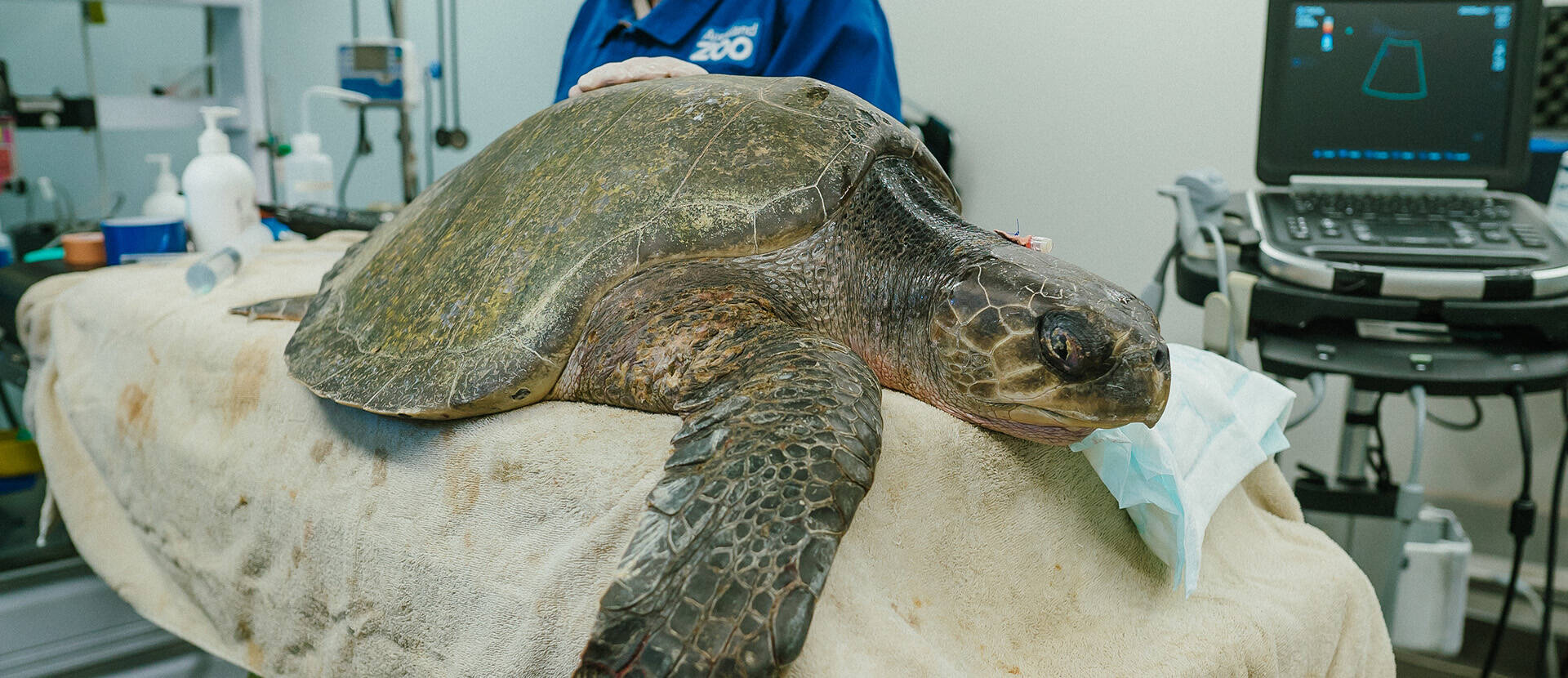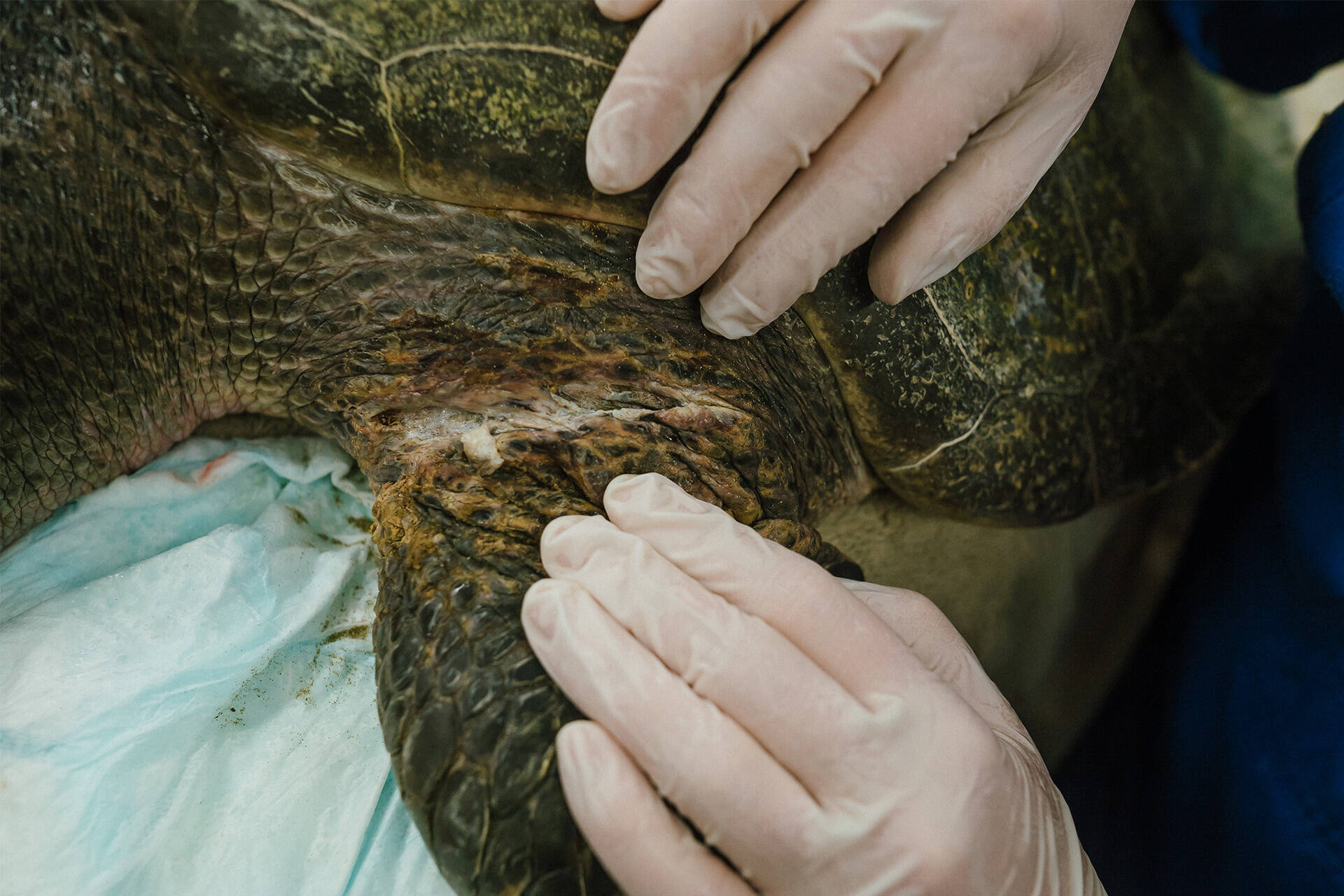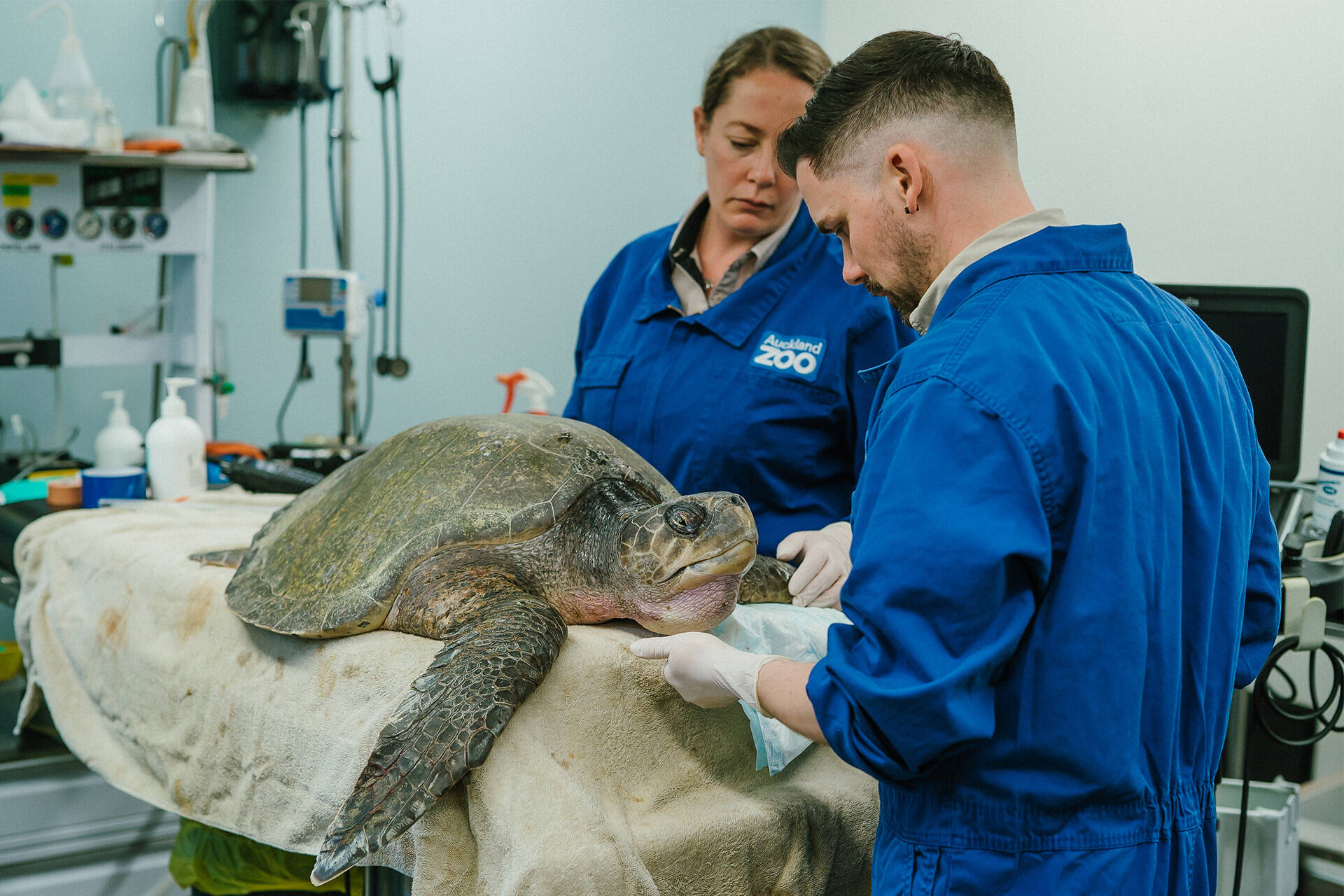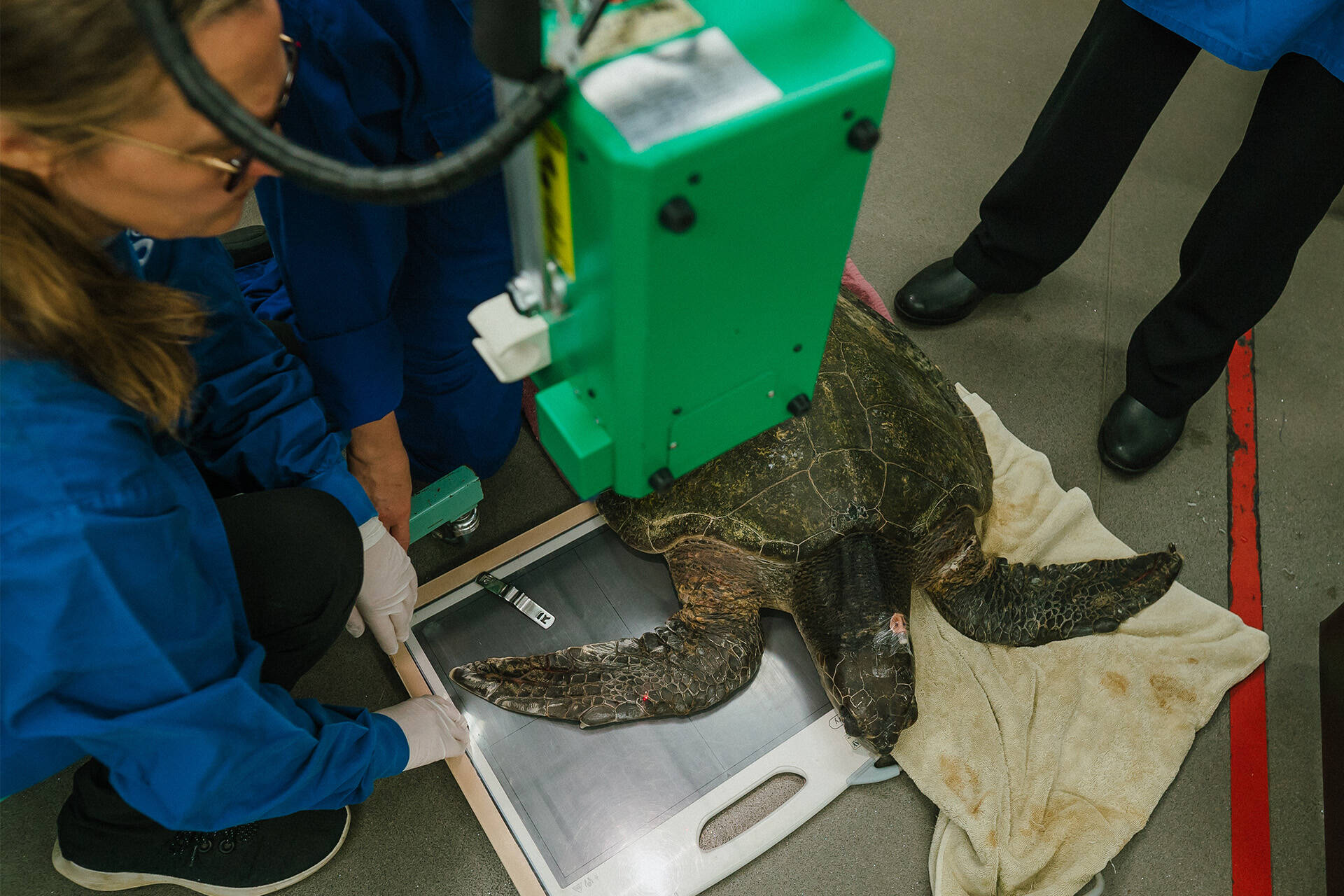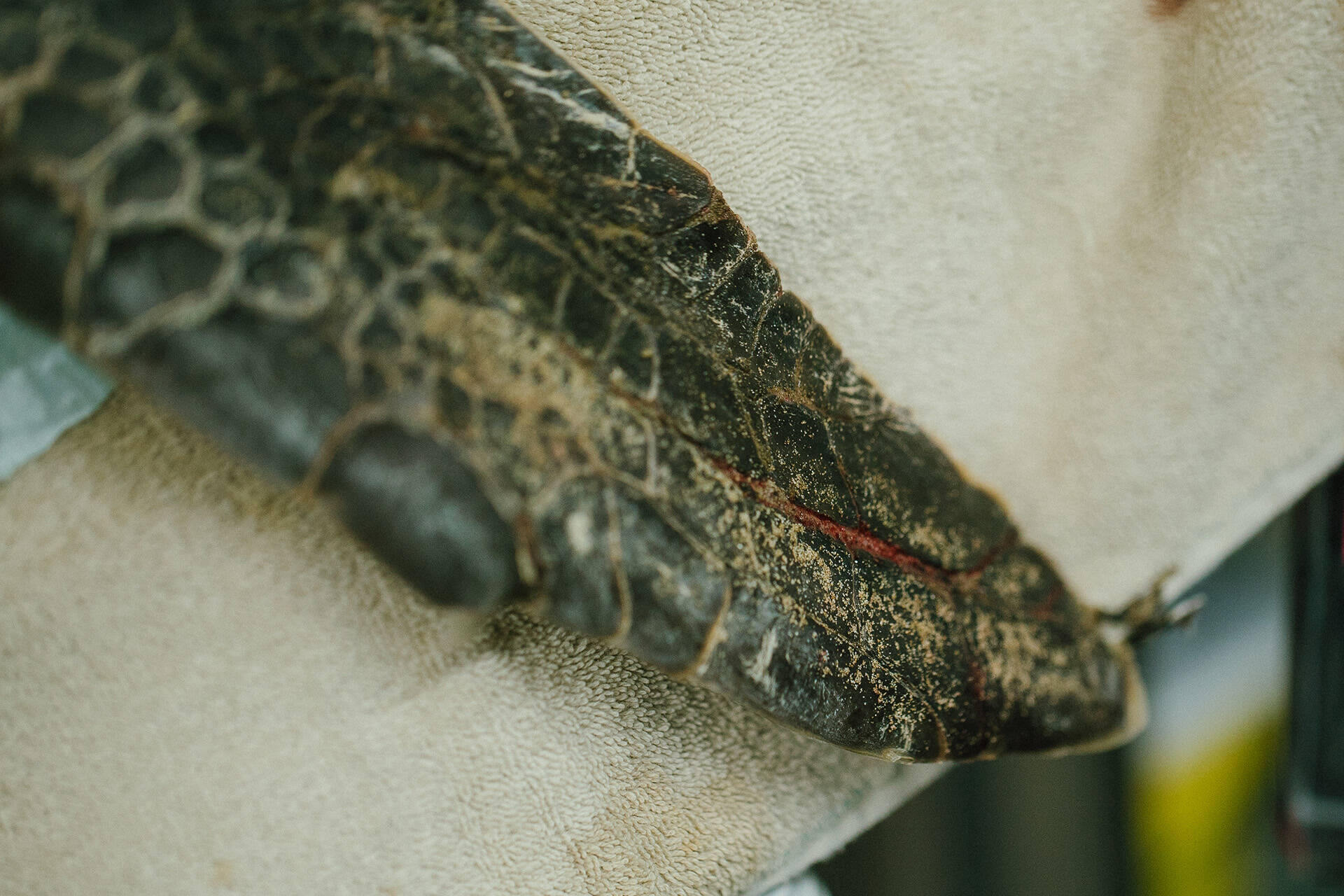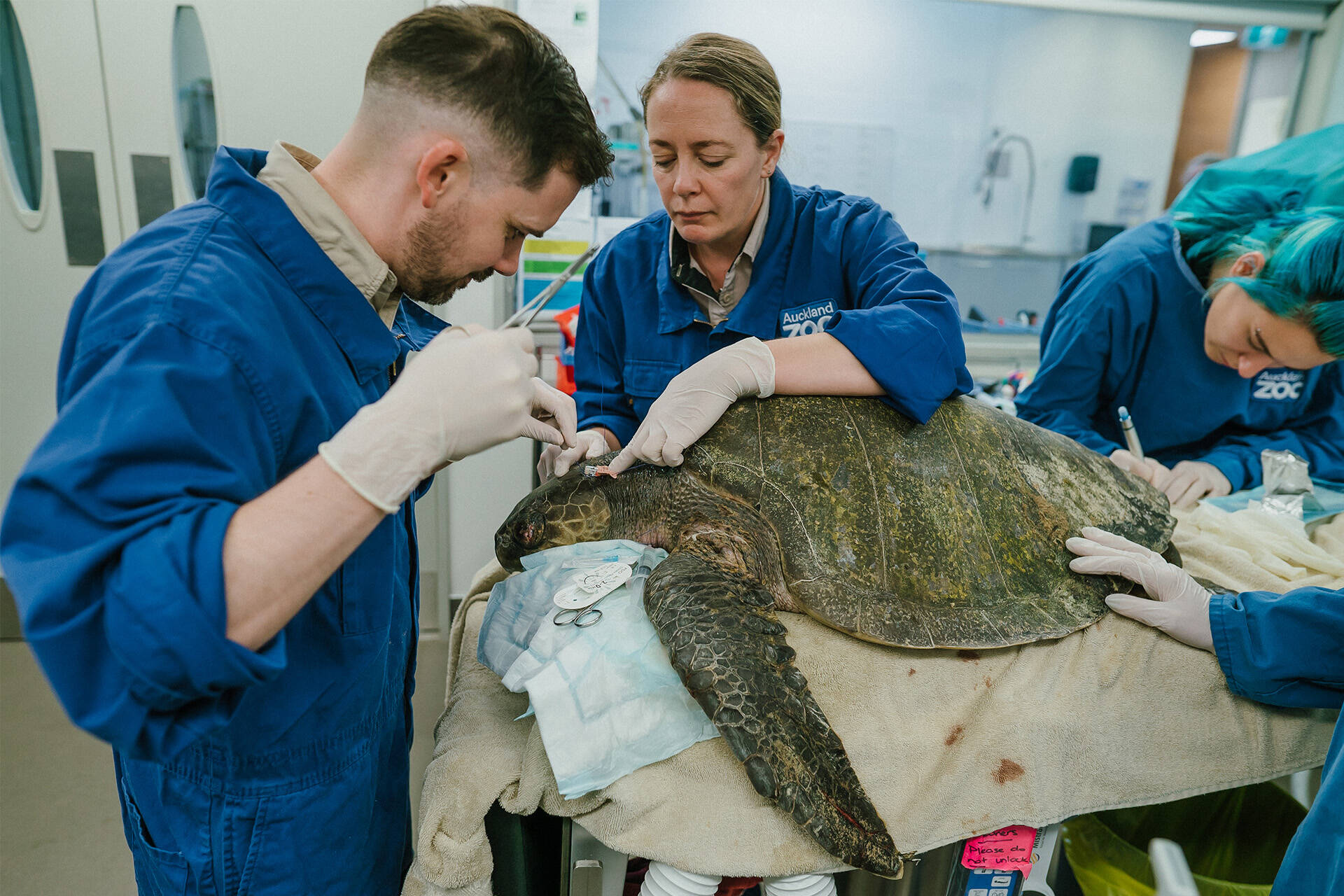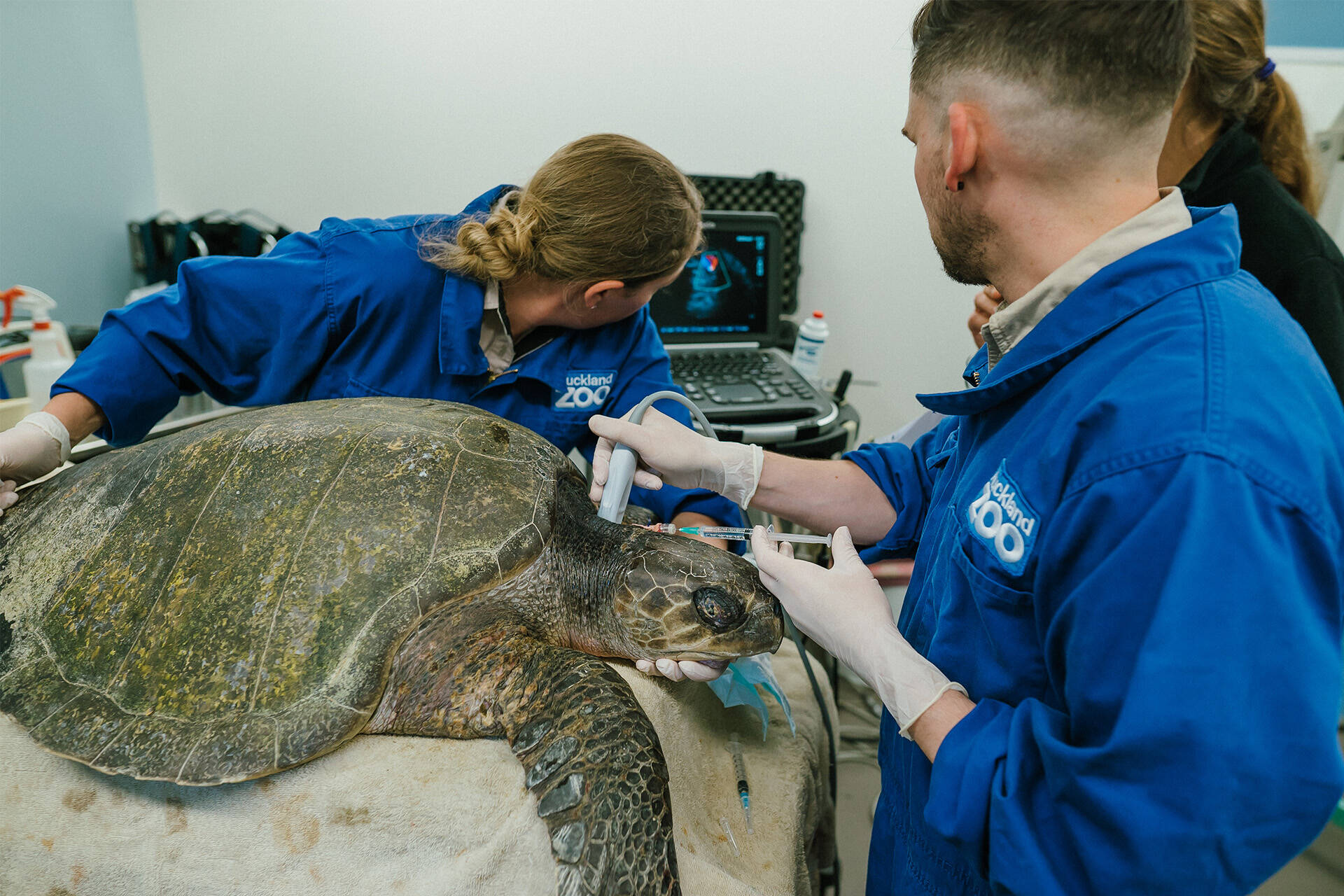A few weeks ago, a sick and injured olive ridley sea turtle was discovered washed up on Te Oneroa-a-Tōhē / Ninety Mile Beach by a concerned member of the public.
Thankfully they did the right thing and contacted the Department of Conservation, who responded to the call and arranged for the sea turtle to be flown to Auckland, where our Team Turtle partners SEALIFE Kelly Tarlton’s collected and transported the turtle to our Zoo Vet Hospital.
On arrival at the Zoo, the sea turtle had a complete clinical examination by our veterinary team, which included taking blood samples and X-rays to assess their systemic health.


